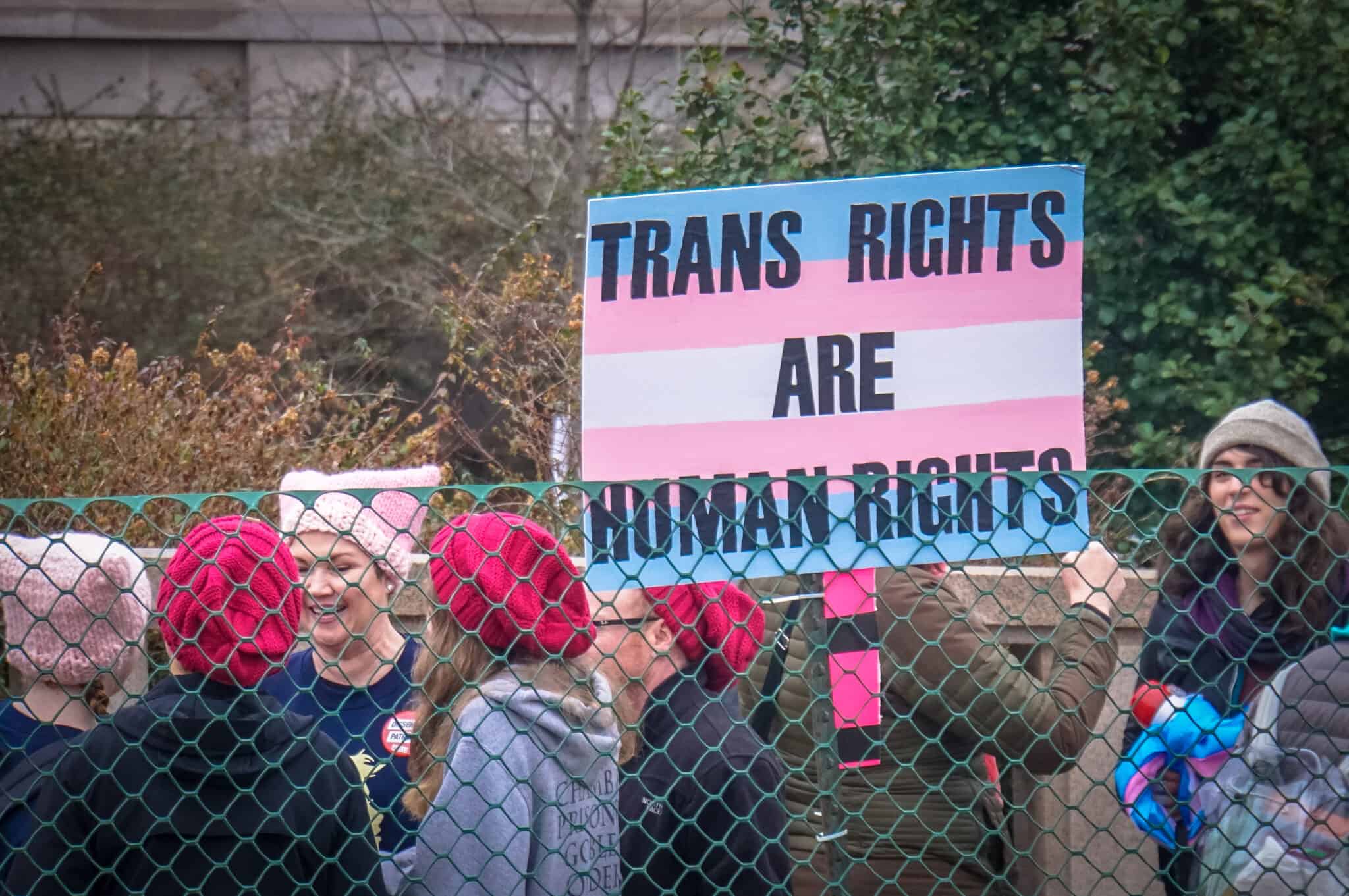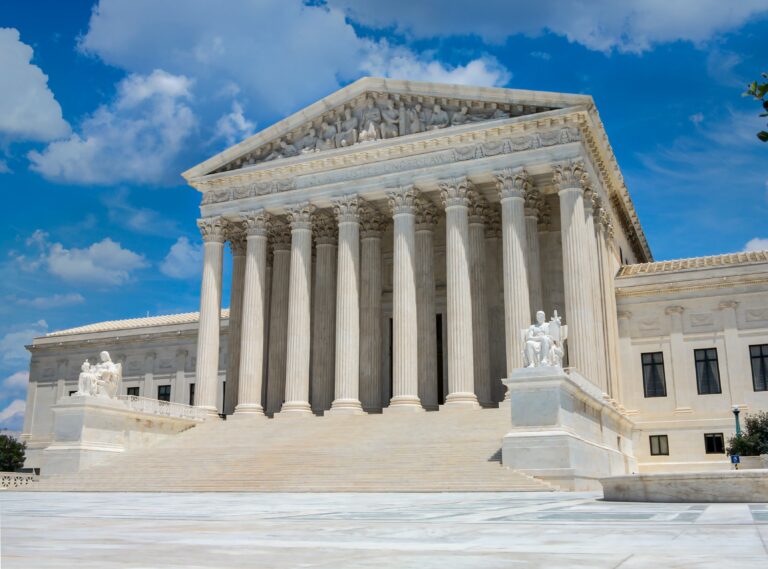Jenny Samuels is a student at Harvard Law School and a member of the Labor and Employment Lab.
Should religious employers be able to discriminate against their transgender employees in the provision of health insurance? Recently, in Religious Sisters of Mercy v. Azar, a federal district court in North Dakota answered that question in the affirmative. The court held that this result was required by the Religious Freedom Restoration Act (RFRA), without acknowledging that upwards of 90,000 employees, and their families, would lose access to life-saving gender affirmation treatment as a result. Religious Sisters of Mercy not only presents a grave threat to recently won antidiscrimination protections for transgender individuals, but also shows an alarming extension of the Supreme Court’s jurisprudence on religious exemptions. By taking religious freedom to such extremes without any consideration of the resulting harms, the court in Religious Sisters of Mercy showed itself willingto allow employers to impose their religious views on employees, no matter the cost.
Defining Discrimination
Section 1557 of the Affordable Care Act (ACA) prohibits discrimination in the provision of health insurance on the basis of race, national origin, sex, age, or disability. In 2016, the Obama Administration finalized a rule implementing § 1557 that defined sex discrimination as encompassing discrimination on the basis of gender identity. The rule indicated that in instances in which § 1557 did not cover a discriminatory health plan directly, the Equal Employment Opportunity Commission (EEOC) could pursue Title VII enforcement actions. This meant that employers could not offer or administer insurance plans that excluded gender affirmation services without running afoul of the law.
Soon after the issuance of the 2016 rule, however, a court issued a nationwide injunction that barred enforcement of the rule’s prohibition on gender identity discrimination on the grounds that federal antidiscrimination law defined sex in only biological terms. In 2020, the Trump Administration promulgated a new rule, which adopted the same reasoning.
Just three days later, the Supreme Court decided Bostock v. Clayton County, holding that “it is impossible to discriminate against a person for being . . . transgender without discriminating against that individual based on sex.” A spate of litigation regarding the implications of Bostock for the ACA’s antidiscrimination provision followed, finally leading to the reinstatement of the 2016 Rule’s definition of sex discrimination.
Employer Religious Exemptions & Health Insurance
Faced with the prospect of having to comply with antidiscrimination law, the plaintiffs in Religious Sisters of Mercy, all either providers of health care or of health insurance plans, brought suit under RFRA, arguing that they were entitled to a religious exemption from § 1557’s and Title VII’s bans on gender identity discrimination. The plaintiffs asserted that these antidiscrimination provisions violated RFRA because they “compel[led the plaintiffs] to perform and provide insurance coverage for gender [affirmation services]. . . .” The court agreed. First, it found that the antidiscrimination provisions substantially burdened the plaintiffs’ religious beliefs by forcing them to “facilitate[] gender [affirmation procedures] through either medical services or insurance coverage.” Then, the court determined that there were “serious doubts” as to whether the government had a compelling interest in enforcing antidiscrimination law against the plaintiffs, since “[n]either HHS nor the EEOC has articulated how granting specific exemptions for the Catholic Plaintiffs will harm the asserted interests in preventing discrimination.” Finally, even if the government did have a compelling interest, the government could accomplish its goals through other means — such as by assuming the cost of providing gender affirmation treatments itself. Thus, the prohibition on gender identity discrimination was not the least restrictive means of furthering the government’s interest.
Religious Sisters of Mercy is only the latest manifestation of employers’ rapidly increasing power to impose their religious beliefs on employees and their families through the provision of health insurance. Even a decade ago, the types of claims brought by the plaintiffs in this case would have raised more than a few judicial eyebrows. Take for instance the plaintiff Catholic Benefits Association (CBA), a nonprofit corporation that provides health insurance for over “90,000 employees and their families.” First, the CBA and its members are not religious individuals, but rather businesses and corporations. Second, the religious objections of the CBA and its members pertain not to their own personal choices, but rather to the medical decisions of their employees.
The Supreme Court legitimized these kinds of claims in Burwell v. Hobby Lobby Stores. Hobby Lobby concerned corporate religious objections to another provision of the ACA, the contraceptive mandate, which requires that employer-sponsored health plans include coverage for birth control. The Court ruled in favor of the objecting religious employers, holding that corporations could now be considered “persons” for the purposes of obtaining religious accommodations under RFRA, and that a corporate entity’s religious exercise could be substantially burdened merely by being made “complicit” in the private medical choices of its employees through the provision of health insurance.
As distressing as Hobby Lobby was, Religious Sisters of Mercy is arguably more so. That’s because the Hobby Lobby Court granted an accommodation, not an all-out exemption, to religious employers. This distinction is crucial, because it meant that employees of the objecting corporations would (at least in theory) still receive comprehensive health insurance coverage for contraceptives, just from the insurance provider directly without any contribution from their employer. Indeed, the entire decision in Hobby Lobby was predicated on the assumption that the accommodation would have, in the words of Justice Alito, “precisely zero” effect on employees’ health insurance coverage for contraceptives. By contrast, a full exemption, like that granted in Religious Sisters of Mercy, means that employees no longer receive insurance coverage for needed care at all. Given the steep cost of gender affirmation treatments, a lack of insurance coverage is likely to prove an insurmountable financial barrier for many.
Even in more recent years, as the Supreme Court has shown increased sympathy for the claims of religious adherents, it has never held RFRA to require the type of expansive, harmful exemptions won by the plaintiffs in Religious Sisters of Mercy. Bostock itself left as an open question whether or not RFRA required religious exemptions to Title VII. And, this past summer, in Little Sisters of the Poor v. Pennsylvania, the Court upheld the Trump Administration’s sweeping religious exemptions to the contraceptive mandate, but it declined to say whether such exemptions were mandated by RFRA. Although Religious Sisters of Mercy treated its decision like a logical extension of Hobby Lobby and Little Sisters, the decision actually goes much further than the Supreme Court ever has, with much broader and more harmful impacts on employees.
Even so, Religious Sisters of Mercy may be a preview where many believe the conservative-dominated Supreme Court is headed anyway — what few limits currently exist on the right of religious adherents to harm others in the name of religion could soon be discarded completely. We can only hope that as employer religious objections pile up, courts begin to consider the group conspicuously overlooked, and most affected, by the Religious Sisters of Mercy decision: employees.










Daily News & Commentary
Start your day with our roundup of the latest labor developments. See all
April 25
FTC bans noncompete agreements; DOL increases overtime pay eligibility; and Labor Caucus urges JetBlue remain neutral to unionization efforts.
April 24
Workers in Montreal organize the first Amazon warehouse union in Canada and Fordham Graduate Student Workers reach a tentative agreement with the university.
April 23
Supreme Court hears cases about 10(j) injunctions and forced arbitration; workers increasingly strike before earning first union contract
April 22
DOL and EEOC beat the buzzer; Striking journalists get big NLRB news
April 21
Historic unionization at Volkswagen's Chattanooga plant; DOL cracks down on child labor; NY passes tax credit for journalists' salaries.
April 19
Alabama and Louisiana advance anti-worker legislation; Mercedes workers in Alabama set election date; VW Chattanooga election concludes today.